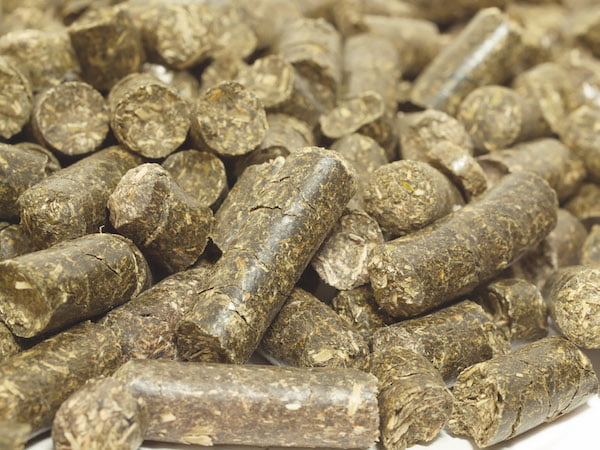
[dropcap]A[/dropcap] well-balanced diet is of utmost importance when it comes to the young horse, and ideally you need to feed something that complements his growth development and workload. Renita de Beer of Royal Feeds shares her insights about how young horses should be fed and constructing the perfect meal plan.
Diet structure
Horses are grazers by nature. Their bodies are designed to eat small, regular meals. For horses of all ages, good-quality roughage should be the biggest component of their diet. Concentrates are fed supplementary to their roughage and to aid their specific needs depending on age, breed, temperament, work requirements and other factors.
Concentrates for the young horse
Let’s split the young horse into two groups:
- Weanlings to three years old
- Three years old and up
Weanlings to three-year-olds should be on a good-quality stud or breeding feed, for example the Royal Feeds Stud Supreme. This product is specifically formulated to meet the dietary needs of young, growing horses. It contains higher levels of good-quality protein and a very comprehensive balanced supplement with highly available minerals, trace minerals and vitamins to promote optimal development. In areas with very rich grazing or for any youngsters who are good doers, I would recommend the Royal Balancer Pellets. The Royal Balancer Pellets are highly concentrated, high-protein, high-amino acid, low-starch pellets. The Royal Balancer Pellets are fed in small quantities, and the maximum daily intake should not exceed 1.5kg.

Youngsters three years old are doing some light backing and/or ground work at this stage in their lives. Since most stud or breeding rations are higher in energy, it could make life difficult trying to back a youngster who is too full of energy. For this reason, one should preferably feed a product that yields cool energy but still has higher protein levels to continue aiding in development. The Royal Cool Grower is designed specifically for this purpose. It is a high-fat, cool-energy, no-maize product with elevated protein. It’s ideal for youngsters who are starting training but still need to grow and develop.
Additives to consider
If you’re feeding a good-quality concentrate like the Royal Stud Supreme or the Royal Balancer Pellets, then additional vitamins or minerals won’t be needed. It would, however, be a good idea to start your youngster on a good supplement for bone, joint and cartilage health, for example the Royal Bone Promoter. It is a comprehensive supplement that also contains MSM, glucosamine and chondroitin. Most horse owners only start thinking about this when their horses are competing at higher levels, but prevention is certainly better than cure. It is therefore very important to select a feed that contains all the necessary vitamins, minerals and trace minerals.
Dangers of overfeeding
An overweight, growing youngster could damage his growth plates, as they fuse at different ages. The process of fusion goes from the bottom up, starting with the growth plate at the top of the coffin bone, in the hoof, which is fused at birth. That is followed by the short pastern, long pastern, cannon bone and then the small bones of the knees, which will fuse between the ages of 18 months and two years.
Adjusting feed as work increases
The first step would be to change the youngster off the stud ration and onto the ‘cool-energy’ ration, like the Royal Cool Grower. This product can be fed from the age of three until the horse is fully grown and mature. As workload increases, you should take note of the horse’s condition. If the horse loses condition due to the extra work demands, then slowly increase the feed. It’s best to always make changes gradually. Young horses between the ages of three and six often need more feed than older horses, as they utilise their feed for growing and developing as well as the work that has been introduced.
The highly strung young horse
You should ideally feed a product that is higher in fat and fibre and contains low levels of starch and grains and no maize. A diet high in fat provides the horse with cool, slow-release energy. The ideal product, such as the Royal Calm Feed, should also contain high levels of magnesium and B-vitamins to help horses cope with stress. Try not to overfeed on concentrates and rather make sure that the highly strung horse has ad-lib good-quality roughage. The use of a calming supplement could also be beneficial. The Royal Stress Mix is a good example of a supplement that can be added to the daily feed to further help combat stress.
Royal Feeds
 Interested in feeding your horse Royal Feeds? Email renita@royalfeeds.co.za, call 011 964 7638 or visit royalfeeds.co.za
Interested in feeding your horse Royal Feeds? Email renita@royalfeeds.co.za, call 011 964 7638 or visit royalfeeds.co.za
The full article appears in the May YOUNG HORSE GUIDE issue (122) of HQ > Shop now

